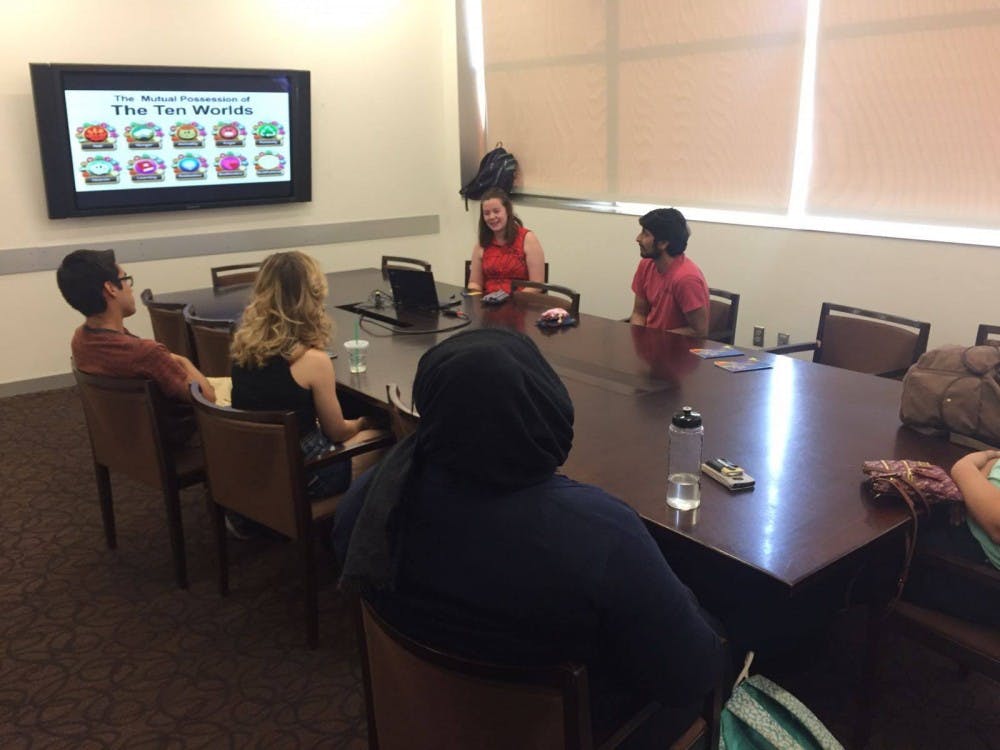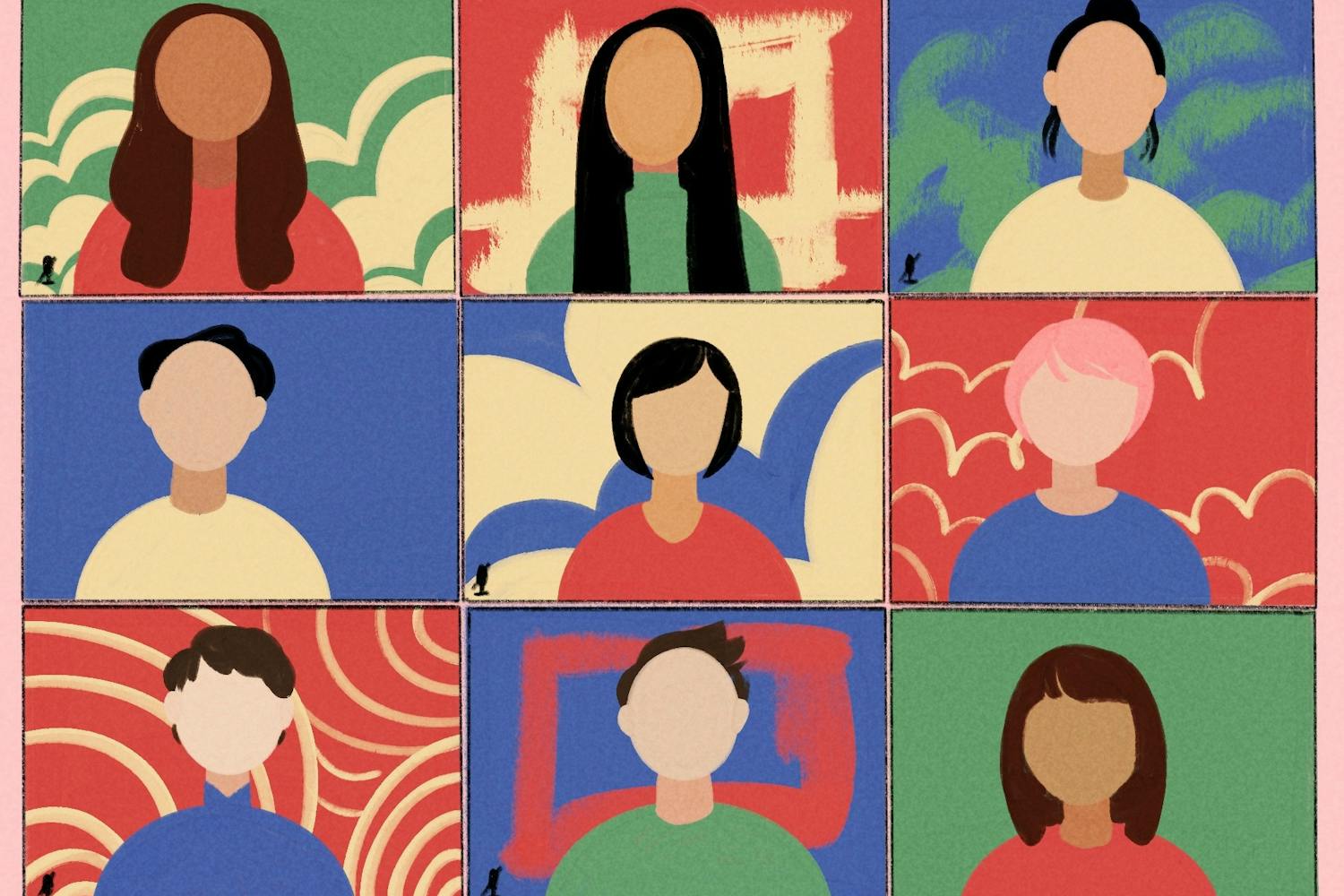Buddhists for Peace is an on-campus club dedicated to educating people on the tenets of Nichiren Buddhism and advocating for peace and environmentalism.
The club is an affiliate of Soka Gakkai International, or SGI, an organization committed to "Buddhism in Action for Peace," according to its website.
ASU alumnus Siddhanth Paralkar graduated from the School of Sustainability last May and is currently the president of Buddhists for Peace. He has been a practitioner of Nichiren Buddhism through SGI since he was in high school in India, and he said his practice has been an important motivating force in his life. He chose his major for graduate studies: sustainability, based on his own Buddhist beliefs.
"Through reading Buddhist literature that we have, I was able to really find this coherence between Buddhism and sustainability," Paralkar said.
Paralkar said he thinks Nichiren Buddhism's value for society can be found in its ability to revolutionize each individual's life.
"One of the things that we do I wouldn't term as the usual form of activism that you see," he said. "We try to create events where people can conduct dialogues, and that's the main tool that we use in Buddhism. So the main goal of Buddhism is to work towards the happiness of ourselves and others, and the best means is to create platforms of dialogue. Through dialogue, we are able to break stereotypes and the negativity within people."
Paralkar said Nichiren Buddhism is an environmentalist philosophy, but at the same time, it is fundamentally a philosophy for individual change.
In a world in which people are often concerned with sweeping changes to industries and institutions, many don't consider individual change the fastest way to a healthy environment. That is where Paralkar and many other Buddhists think Buddhism can be a powerful force for change.
"In general, the main focus of our practice of Buddhism is human revolution, which is not like any political revolution or coup or any kind of physical revolution," he said. "It's basically a focus on how we can transform our own lives, and there's this concept (in) Buddhism that says 'oneness of life and its environment.' So the moment you create a change in your own life, it reflects in your environment and vice versa."
This idea is not confined to Nichiren Buddhism. Many traditions hold that individual change is the path to a better society and a healthier environment.
For example, the 14th Dalai Lama, who practices Tibetan Buddhism, penned a similar thought: "As far as the individual is concerned, the problems resulting from our neglect of our natural environment are a powerful reminder that we all have a contribution to make. And while one person's actions may not have a significant impact, the combined effect of millions of individuals' actions certainly does."
Nichiren Buddhism does not exclude practitioners from having other religious beliefs. As such, Buddhists for Peace has members of varying religious backgrounds and persuasions.
For example, religious studies sophomore Rachel Sondgeroth is a member of Buddhists for Peace. Coming from a Christian background, she originally found Buddhism through the club. She has not distanced herself from her Christian beliefs, though, saying she works to reconcile them without being untrue to herself or either spiritual philosophy.
"It was a really hard — and it continues to be kind of confusing — journey of just wondering, 'How does this practice fit in with the concept of appreciating and loving a god?'" Sondgeroth said. "It might be too blasphemous, for lack of a better phrase, but at the end of the day, I have a really strong sense that I'm in the right places for the right reasons."
Nikhil Sonawane graduated from ASU with a master's in mechanical engineering in December 2016. He also holds religious beliefs outside of Buddhism, namely Hinduism.
Sonawane said he realized the value in studying with Buddhists for Life when he reconnected with a friend after she started attending the club meetings.
"She started practicing, and I saw her transform over that period of seven to ten months," Sonawane said. "And it really got me interested. How can a person change from within? I decided to (start) going to the meetings."
Buddhists for Peace meets every Monday at 5 p.m. in the Memorial Union on the Tempe campus.
Reach the reporter at parkermshea97@gmail.com or follow @laconicshamanic on Twitter.
Like The State Press on Facebook and follow @statepress on Twitter.




